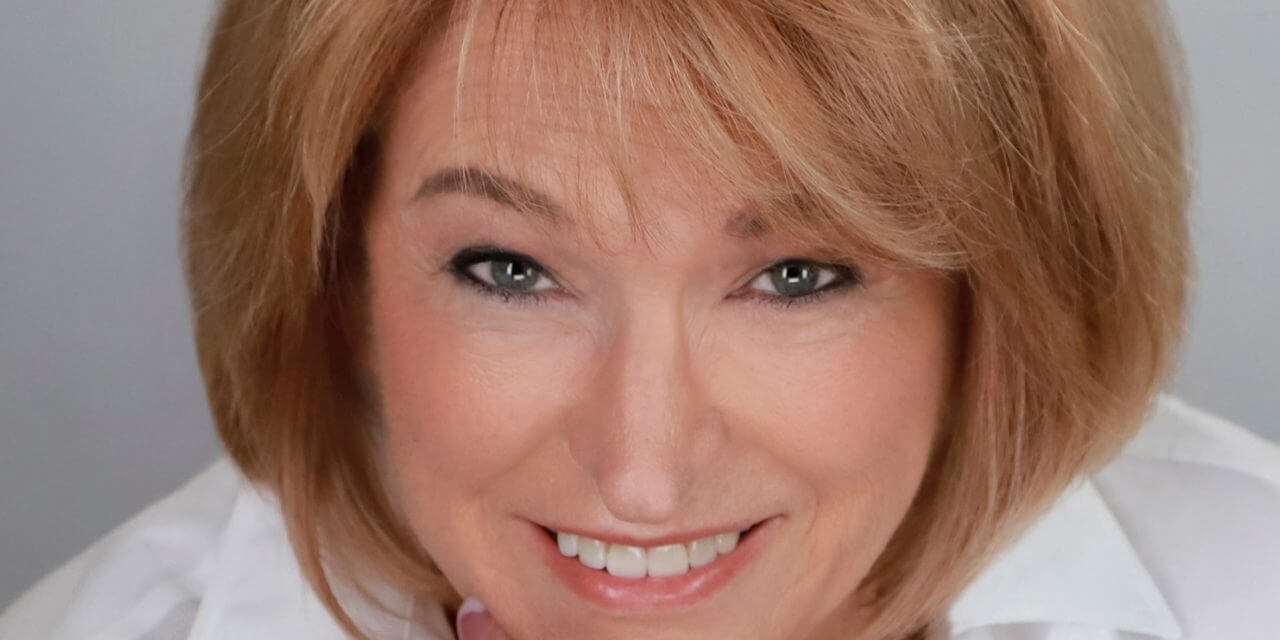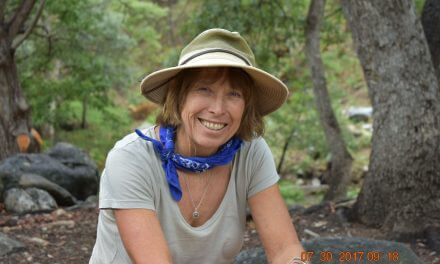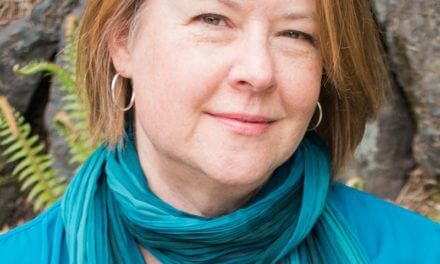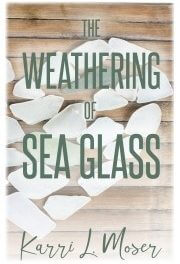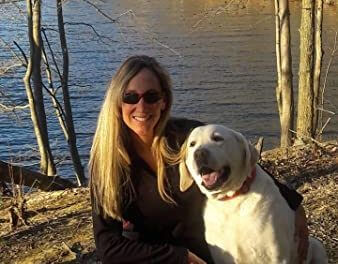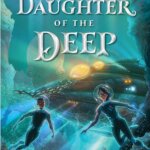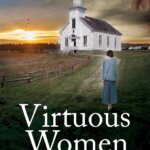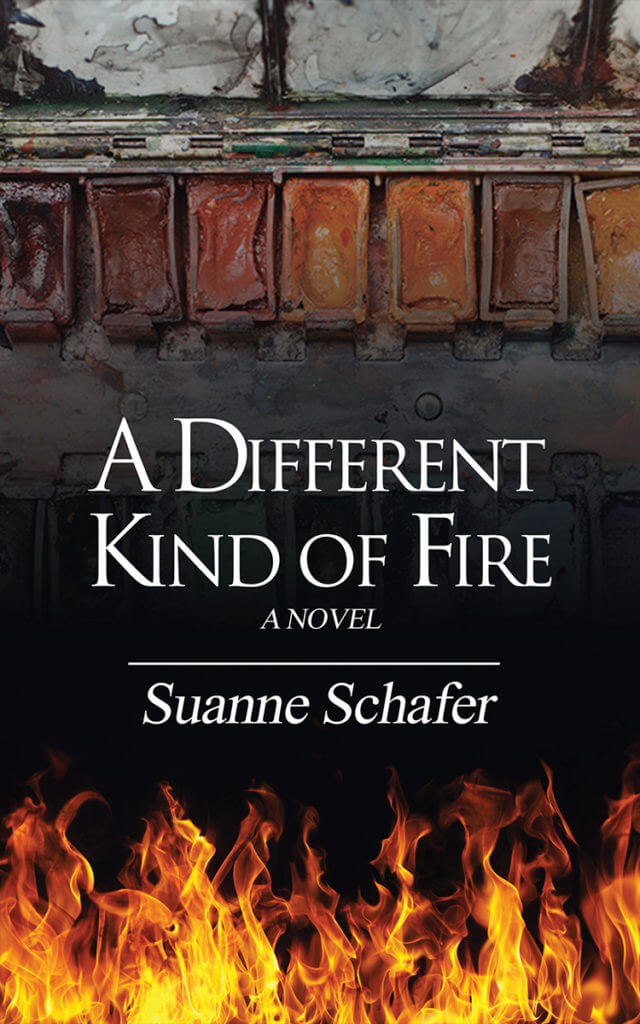Maggie Smith joins me today. She loves a challenge. In careers that have included work as a journalist, a psychologist, and the founder of a national art consulting company, she’s now added published author to her resume. Raised in Oklahoma but a resident of Wisconsin all her adult life, she relishes the supportive community of writers she discovered through the Women’s Fiction Writers Association, and to give back, she hosts their weekly podcast Hear Us Roar (available on Apple Podcasts, Spotify, and Google), where she interviews debut authors about their novel and their path to publication. Her short story, “The Devil You Know,” appeared in the 2018 anthology False Faces, and she’s a regular monthly blogger for Rocky Mountain Fiction Writers. She’s also on the board of the Chicago Writer’s Association, where she’s Managing Editor of their on-line literary publication, The Write City Magazine, and coordinator of Book Nook, a monthly initiative which highlights Chicago-area independent bookstores.
SS: Maggie, can you share a bit about your background?
MS: I was raised in Tulsa, Oklahoma but went to Northwestern University in Chicago when I began college, intending to become a journalist. Life intervened, and I returned to Oklahoma and instead majored in English, then switched and got a Ph.D. in Counseling Psychology with the intention of being a therapist. Life again, this time in the form of marriage, brought me to Milwaukee where my new husband and I decided to be adventurous and founded a retail business selling art prints which eventually grew into a nationwide art consulting business. That was my major career until selling my business four years ago and deciding to write fiction full-time. So I’ve had three distinct careers, first as a psychologist, second as a business CEO and lastly, as a writer.
SS: I’ve had a similar string of careers. I think it’s never too late to reinvent oneself. I’ve been a travel photographer, a medical photographer, a physician, and now an author and blogger. Tell me, did you have an early experience where you learned that language had power?
MS: That had to be Watergate. I followed Woodward and Bernstein’s reports faithfully, fascinated that two young reporters could topple the President of the United States through their dogged adherence to uncovering the truth behind the break-in and keeping the story in the public eye until the populace could no longer ignore it. It’s probably what made me want to go into journalism. And, in fact, my final acknowledgement in my debut novel (which features both a young newbie and a well-seasoned reporter) is to the brave journalists who continue to go after the truth, no matter what the personal or professional cost. We’ve seen that recently in the #MeToo movement, and before that, in the efforts of the Boston Globe to uncover the scandals in the Catholic Church.
SS: Did anything in your past push you to write your book and the conflicts in it?
MS: One of the central issues I examine in my novel is the conflict that often occurs when a mother and daughter hold different opinions about how to live a life. This was certainly the case with me and my mother. When it came time to write my first novel, I wasn’t surprised that those old hurts and wounds were still festering and came out in the story of my protagonist Megan’s interactions with her mother, Helen. The dialogue was easy to write because I’d lived through many a similar argument. Eventually I was able to find a way for my characters to reconcile. That the beauty of fiction, I guess. I could give them the happy ending I wasn’t able to achieve.
SS: Writing is undoubtedly a lonely occupation, John Green (The Fault in Our Stars) says writing is a profession for introverts who want to tell you a story but don’t want to make eye contact while doing it. P. D. James (Cover Her Face) says it’s essential for writers to enjoy their own company. Do you see yourself along those lines? Are you a natural loner?
MS: When I was a girl, I was very much a loner. I’m not sure if it was my natural temperament or my circumstances as the oldest child, but I always felt like a little adult around my peers, who often struck me as silly and frivolous. I was very concerned with achieving high grades and much more interested in holing up in my bedroom reading than in playing with neighborhood kids. As an adult, I became more gregarious; in fact, many of my friends would consider me an outgoing person. I enjoy social events and having close relationships, but I’m also quite comfortable in my own company, so writing alone in a room by myself is not a problem. My husband and I both work out of our home, but we have separate areas we retreat to during the day. Too much togetherness is hard for me to tolerate. I need a certain amount of alone time so writing is a perfect occupation.
SS: How does your home and its environment influence your writing?
MS: I have commandeered a spare bedroom for my “office” and lined it with bookshelves which are bulging with not only fiction (read and unread) but craft books, short story sections, non-fiction books, and thriller/mystery novels. I have an aged Sheltie who sleeps away the day at my feet and a comfortable workspace with not only my laptop but my podcast equipment, printer, and ergonomically-comfortable chair. I have candles I can light when I start a writing session and earphones to block out noise or pipe in soothing sounds to write by. Having a separate space away from my husband (and FAR away from the kitchen) means I’m not distracted by what’s happening in the home. And luckily our kids are young adults and on their own so there are no child-care issues impinging on my time.
SS: What are the elements you think make a great novel?
MS: For me, I look for fascinating characters who I can’t quite figure out—I like it when they are different than me, either in the time period they live in, their approach to life, their occupation, their situation. After that, I’m looking for plot—that is, what is happening to these characters that will keep me turning the page. Lastly is lyrical language. That’s not a deal-breaker for me because if character and plot are in there, I’ll enjoy the read. But a beautiful turn of phrase, interesting metaphors, and commentary will enhance my enjoyment tremendously and take a book from a four-star to a five-star.
SS: What are you working on at the moment?
MS: My first novel is squarely in the women’s fiction genre. My second veers more into psychological suspense. It’s the story of am ambitious district attorney desperately chasing down the person stalking her and her teenage daughter, only to be arrested for murder when he turns up dead. I’m about half-way through the first draft though I have most of the book outlined.
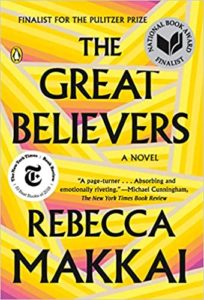
MS: I’d loved to have written The Great Believers (by Rebecca Makkai). I think it’s the Great American Novel everyone keeps looking for. So heartfelt, so nuanced, so well-written with both lyrical passages that break your heart, historical context that helps you understand the 1980’s and the AIDS crisis in America, a love letter to the great cities of Chicago and Paris, and a bunch of true-to-life human beings you’ll feel privileged to spend time with. Yes, it’s long. Yes, it’s dense. Yes, there is a large cast of characters. But it’s worth it. A true masterpiece.
SS: Which of your characters surprised you the most for the decisions they made?
MS: Helen, the mother of my protagonist. She’s a 49-year-old woman who up to this point has primarily been a wife and mother, but because of her leadership in the state-wide pro-life movement, has been tapped by the Republican Party to run for Congress. She is desperate to reconnect with Megan (her 25-year-old daughter and the protagonist of the novel) but at the same time, falls back into old patterns of over-protectiveness and control. She was the character I felt the least close to and initially didn’t have her playing much of a role in the plot. But over time, I became interested in her life journey, what might have made her such a helicopter mom, and also what she was going through since her divorce and being thrust into the limelight because of the election. I can’t go into what informed her life decisions very much (you’ll have to read the book to find that out!) but I will say that her back-story developed as I wrote and I was delighted with her eventual role in the novel.
SS: Who do you most wish would read your book?
MS: I’d love for mothers in middle age and their young adult daughters to do a buddy read together and have the book’s themes serve as a springboard for them to discuss life choices, role models, and what they each are striving for at this moment in their lives.
SS: What is a fun or strange source of inspiration that ended up in your book (a name, location, line of dialogue, etc).
MS: So many! I want to Northwestern for journalism, as did my protagonist Megan. I changed my name legally, as did my character Jocelyn. But the most fun was creating a bit of banter between Megan and Nick, a man she encounters at a company picnic. I knew I wanted a reference to a movie that age group would have seen, and I remembered how “Eternal Sunshine of the Spotless Mind” was one my step-children had particularly loved, so I had Megan and Nick trade quips back and forth about that film.
SS: How do you give back to the writing community?
MS: I’m so glad you asked that, because I consider it one of the top things a writer should do—support their fellow writers in any way they can. I host a podcast for the Women’s Fiction Writer’s Association, Hear Us Roar, where I interview members when they publish their debut novel. By the time this interview publishes, I will have done over 130 episodes, and it’s been a delight. I not only get to shine a light on these talented writers but also have learned so much from their stories, both practical marketing tips as well as insights into the creative process and how different the paths to publication can be. I also serve on the Chicago Writer’s Association board of directors and am the managing editor for their on-line literary publication Write City Magazine. That gives me a chance to showcase not only writers in this country but around the world. Finally, I make it a point to spend time posting on social media about other’s triumphs. My guideline is to post four times about either someone else’s book or a writing event or an inspirational quote for every one time I mention my own book. Because of doing that consistently over the last 18 months, I now have a community of writer friends who support me in the marketing efforts for my debut (social media posts, interviews, book reviews) because I did the same for them.
SS: A good ending should fix the shape and meaning of the whole novel. How did you make sure yours did exactly that?
MS: I picked this question to answer because the ending to my book was so hard to figure out! Initially my ending had the “bad guys win” which was totally unsatisfying, but I could not come up with how to change it. It took working with a good editor to find the solution. Now early reviewers often mention the “twist at the end” which I don’t view as such, but the natural progression of what might happen given the nature of the characters I created. But I’m glad I took the time to find another ending that seems realistic yet a bit unexpected.
SS: Which scene did you find the most challenging to write and why?
MS: There is a pivotal scene toward the end of the book when my protagonist Megan and her beloved mentor Jocelyn are coming to terms with what Megan has discovered and the true nature of their relationship is revealed. It’s a heart-wrenching encounter for Megan because it not only exposes flaws in a person she idolizes, but also forces her to reconcile her own role in the situation and her own neediness.
SS: Does your book carry a message? If so, what would you say it is?
MS: I hope the reader finds herself thinking about how quickly we often stereotype others without truly understanding what has led to their behavior and second, how we often hide the truth to protect the people we love, only to wind up hurting them in the end. And finally, how time and age change us and shift our perspective and values.
SS: What was the first book you fell in love with?
MS: I distinctly remember starting to read Gone With The Wind on Thanksgiving morning and getting in big trouble with my mother because I didn’t want to come to the big family dinner at mid-day because I wanted to keep reading!
Lightning Round:
Describe your book in 3 words: Female-centric, fast-paced, contemporary
Favorite thing about your genre: Encompasses so many elements, including historical, magical realism, romance, family, work issues
Another genre you would love to write: Psychological suspense
When writing, night owl or morning person: (Late) morning person 9-12

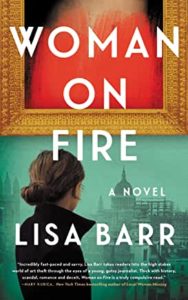
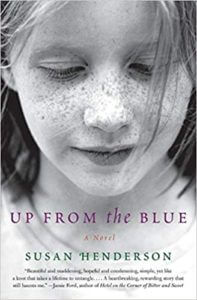
Number one book boyfriend or girlfriend: Tillie Harris, the 8-year old narrator of Susan Henderson’s Up From the Blue.
Your favorite genre of romance: Scottish Highlands (preferably by my writing pal Jennifer Trethewey)
Who’s your favorite women’s fiction author: Sue Miller
********************
Truth and Other Lies is available through:
Amazon | Bookshop | IndieBound | Ten16 Publisher | Barnes & Noble
********************
An excerpt from Truth and Other Lies:
(Note: Megan, the narrator and a 25-year-old reporter, has just shut down an alt-right heckler who interrupted a speech by Jocelyn Jones, Pulitzer-prize winning journalist; she incurred some bruising and cuts as a result)
I twisted around to see Jocelyn Jones looming over me, blocking the blazing sun.
“You were quite brave back there,” she said. “Are you all right?”
All I could manage was a nod. My brain hurt when I moved, and my ears wouldn’t stop ringing. Was I hallucinating?
“It’s been a while since I’ve been physically attacked. Perhaps I’m still relevant after all. Thank you for what you did, Ms. …?”
This wasn’t a mirage. It was actually her. I opened my mouth, but nothing came out. Somehow, I managed to stand and took another stab at answering her question. “I’m … Megan Barnes.” I stuck out my hand. “I’m sorry … your speech.” I couldn’t make my mouth work right.
Jones squeezed my hand, and her skin felt cool to the touch. “Never apologize for defending yourself or other women. What you did took courage. Are you a student here at Northwestern?”
Desperate to sound halfway like myself, I stood straighter and took a deep breath. “Yes. I mean no, I graduated from here, but … I just moved back.”
“That’s a coincidence. So did I. And you took time out on a Saturday to protest. Good for you.”
“Not enough people bother to make their voices heard. I mean, if we don’t, then before long …” I let my rambling dribble to a halt and told myself to cool it.
She studied my face. “What do you do here in Chicago, Megan?”
Jocelyn Jones, world-famous war correspondent and award-winning journalist, was standing right in front of me, making conversation. Talk about a dream come true. I needed to get control of my emotions before I blew this chance. Finally I burst out with, “I’m an investigative reporter and I want to work at the Chicago Tribune.”
She smiled. “Good for you. I admire people who set lofty goals. I’d like the chance to thank you properly for what you did.”
“I’d like that too. I mean. Hold on.” I spilled half the contents of my purse on the ground, grabbed an old grocery store receipt, scribbled my name, cell phone number, and email address on the back, and thrust it out. “Here’s how to reach me.”
She let out a throaty laugh, and a warm glow spread through my body as she tucked my information in her pants pocket. This was going okay. Natural. As though we were two close friends having a casual chat.
“Listen, the march is starting, so I need to get back, but I’ll be in touch. And take it easy, okay? Go home and put ice on that cheek. And again, I appreciate you coming to my defense.” She turned.
I couldn’t let her leave yet. “Wait!”
She spun back around. “Yes?”
“Do you have a business card? I mean, so I could contact you, in case …” In case what? She didn’t call me? She threw away the slip of paper? She forgot all about me?
“I’m sorry, no.” She shielded her eyes from the sun’s glare. “But don’t worry. I’ll remember you, Megan. After all, it’s not every day I meet … what was it your friend said? Ah, yes. Wonder Woman.”
I stood motionless as she disappeared into the crowd.
********************
You can follow Maggie on social media here:
Author Website | Facebook | Instagram | Twitter | GoodReads | BookBub
********************
This post contains Amazon Affiliate links. As an Amazon Associate, I may earn a small amount from qualifying purchases.
